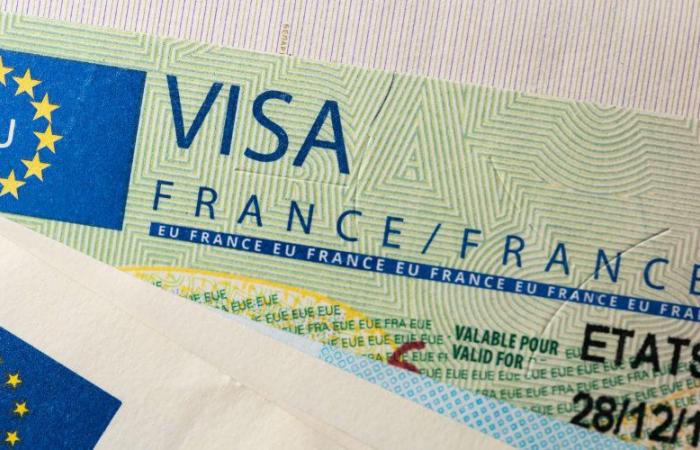
Emmanuel Macron admitted the failure of French visa policy towards Morocco and Algeria. This policy led to a drop in the issuance of residence visas in France and “damaged our reputation and our image, without greatly improving our efficiency. However, this does not mean that we must go towards laxity. We must have a policy of rigor, but which allows us to condition intelligently and simplify our visa policy. “, he admitted on Monday, during his conference in front of the ambassadors.
Read: The ordeal of Moroccans wishing to obtain a visa for France continues
Paul Hermelin’s report, sent to the Ministers of the Interior and Foreign Affairs in April 2023, had already established this observation of failure of the visa policy, revealing an increase in the refusal rate which rose from 10.7%. in 2010 to around 17% in 2023. The French authorities had opted for a tightening of policy in order to strengthen the control of migratory flows, security, and effectively fight against irregular immigration and visa trafficking, recalls The Point. Unfortunately, the measure did not produce the expected results.
Moreover, the tightening of visa policy has created more problems than it has solved. It has led to tension in relations with countries like Morocco and Algeria, to a reduction in economic and cultural exchanges and has favored the emergence of networks of intermediaries. Likewise, the reduction in staff numbers in French consulates has led to an increasingly longer processing time for visa applications. Applicants sometimes wait up to ten weeks to obtain a simple appointment.
Read: Visas for France sold for 7,000 euros
Faced with the phenomenon of intermediaries which is growing “in countries with high migratory pressure, where the issuance of a visa represents a considerable challenge”, the Hermelin report recommends adopting a system of “attribution” of appointments. you in order to “secure the process”. The document also notes an anomaly: 120 partnership agreements aimed at facilitating the issuance of visas were signed with Algeria and none with Morocco. To change the situation, he recommends restructuring the network and strengthening consulate staff.
While calling for strengthening controls, the report calls for a balancing of the three objectives: security, migration control and attractiveness, with a view to facilitating the entry of “target audiences” (talent, entrepreneurs, etc.). Furthermore, France plans to introduce a Schengen e-visa in 2026. A reform which will make it possible to eliminate consulate appointments and visa stickers; in short, to reduce fraud and strengthen security, and to save time and money.





